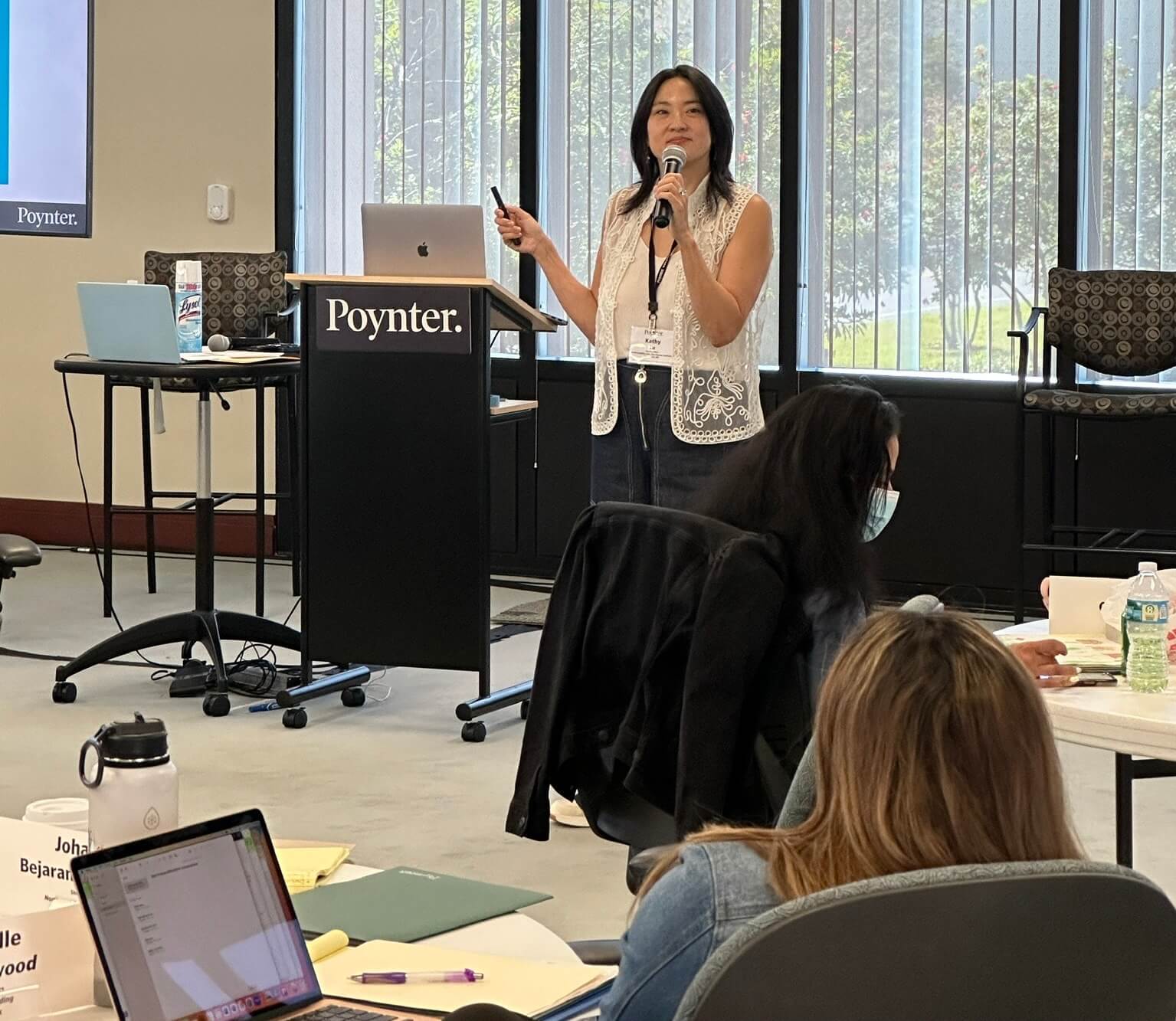This article originally appeared in Try This! — Tools for Journalism, our newsletter about digital tools. Want bite-sized news, tutorials and ideas about the best digital tools for journalism in your inbox every Monday? Sign up here.
With so much focus on things like social media and flashy interactives, it’s easy to forget that some of our best engagement happens in real life.
The news industry has tried a variety of creative and bold events: a $250 election watch party with top New York Times editors, a conversation about sexual harassment with a bipartisan group of legislators in Texas, a geeky bash with a foosball tournament.
But what about a game show? As I wrote about previously, an American University study found that interactive games can improve both news engagement and understanding.
SPJ Florida gave it a shot with the Fake News Game Show. Teams competed to discern whether 15 stories were real or fake. The kicker? All the fake news stories used were real fake news stories — none were made up for the game.
“Fake news is such a huge talking point so we wanted to educate everyone — journalists and non-journalists alike — in a way that wasn’t a panel discussion or a single speaker event,” said Dori Zinn, the previous president of SPJ Florida. “Media literacy is a big deal no matter who you are.”
The chapter found that the game taught people not just how to identify fake news, but also about the rigorousness of the reporting process.
"I don't think we realized how many non-journalists would end up playing and getting a crash course in journalism credibility from it," said Emily Bloch, SPJ Florida's vice president of programming. "It really goes to show how important educating everyone on media literacy is."
THE MORE YOU KNOW: Tell me if this sounds familiar. I’m searching for someone’s contact information and the only credible site that appears is LinkedIn. I send the person an InMail and hear back in approximately 12 days, by which time I’ve either found them through an alternative means or given up. Skip the wait with a plugin called Skrapp. It uses a search algorithm to hunt down a LinkedIn user’s email address and tells you how accurate it thinks its findings are.
WORDS MATTER: Interactive storytelling platform Playbuzz released an end-of-year study that found that though the effectiveness of interactive elements and videos are “unquestionable,” it’s important to balance them with non-interactive elements. The study found that a healthy blend of the two results in a 20 percent increase in time spent on a page. So maybe don’t let those arcane grammar rules drop out of your mind just yet.
BLEEDING EDGE: It was weird enough that actor and author B.J. Novak (you probably know him from "The Office") launched a tech startup in 2015. It was weirder still that it was actually good. The List App, which closed last September, was full of funny and engaging user-generated lists that covered just about every topic you could imagine. But Novak is back with a new app for sharing photo and video collections called Kiyo. As Recode notes, it’s “kind of like Pinterest.”
GET SOCIAL: In brief, Snapchat isn’t doing as well as you’d think and Facebook’s algorithm change that cuts out the journalism might have a silver lining.
- The Daily Beast got ahold of some private Snapchat analytics and found that most people are using it as a chat app, few people are using the (excellent) Snap Maps feature and personal snaps are significantly more popular than stories.
- Scott Kleinberg looked at all of the pageviews Facebook sent journalists over the years and wondered if maybe we lost our way. When they eventually cut us out of users’ more personal newsfeeds, we’ll be forced to go for “more meaningful social interactions,” like actual conversations.
CRUNCHING NUMBERS: Abbott Katz’s Spreadsheet Journalism blog is a must-see for data nerds. The site promises to “help bring you up to speed with some of Excel’s important capabilities, and point you at the story possibilities boxed inside the data.” The most recent posts dig deep into a U.S. police shootings database from Vice, and I mean deep. Katz shares his observations about the data, how its structured and how he’s parsing it. I’ve only been reading for a week or so and already learned a ton of new things about Excel and spreadsheets.
LAST WEEK: You probably heard that Storify, once the darling of social media storytellers around the world, is closing. Kristen Hare and I talked through some options for those of you who have multiple Storifys you’d like to save. Since then, we’ve heard from multiple readers that Wakelet is a viable alternative. Check it out and let me know what you think.
Try This! is powered by Google News Lab. It is also supported by the American Press Institute and the John S. and James L. Knight Foundation







